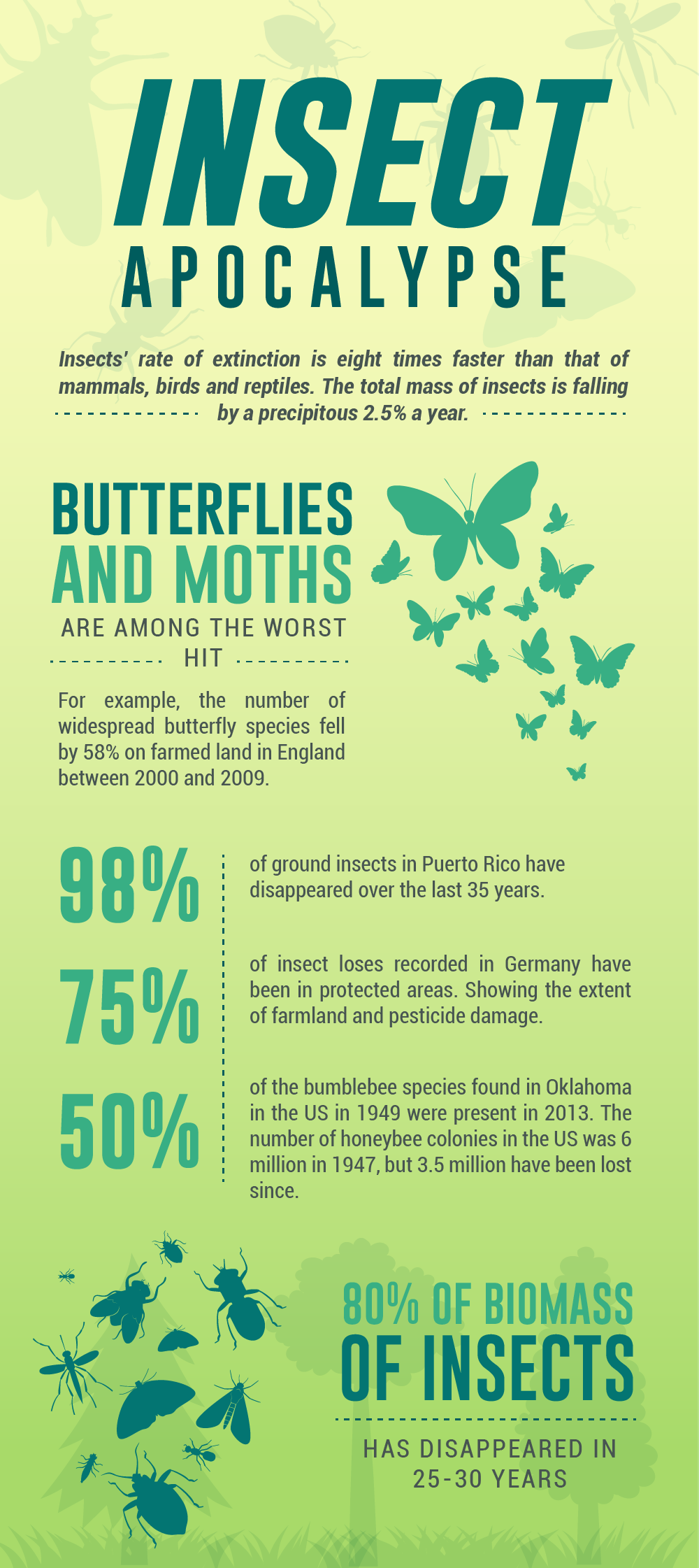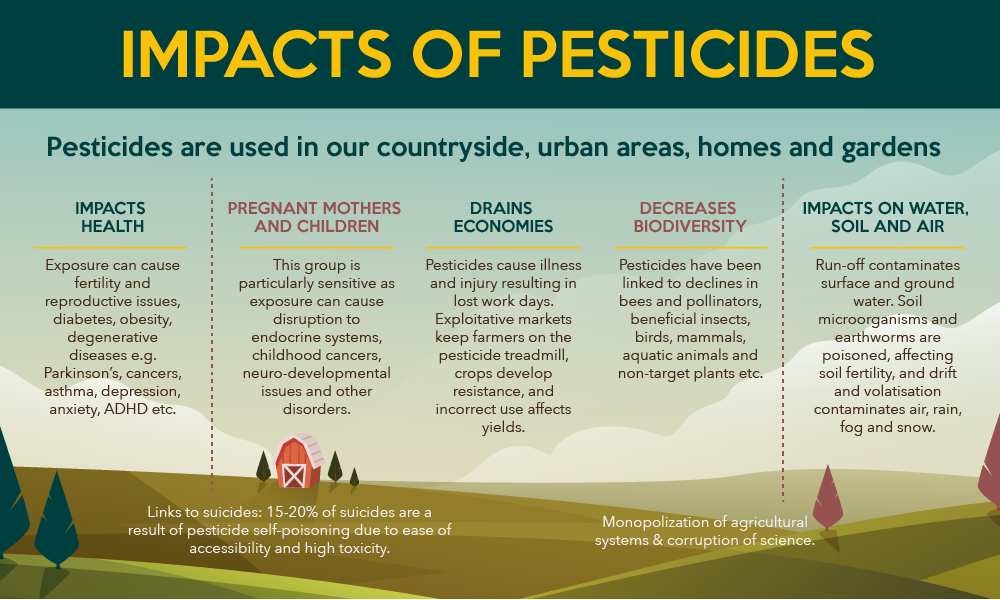“We are not alarmists, we are realists.
We are experiencing the sixth mass extinction on Earth.”
Dr. Francisco Sanchez-Bayo, Sydney Institute of Agriculture
40 percent of insect species could disappear over the next 100 years, according to a recent review by a prominent scientist from the Sydney Institute of Agriculture. Dr. Francisco Sanchez Bayo says that habitat loss from intensive agriculture, alongside agro-chemical pollutants, invasive species and climate change, are the main drivers behind the collapse of insect populations. Insects constitute the world’s most abundant animal group – about two thirds of all terrestrial species – and provide critical services within numerous ecosystems. As a vital part of the food chain, their demise would inevitably lead to the end of a great number of wildlife species, the collapse of our ecosystems and food shortage worldwide.
Insects are vital to nature’s ecosystem, providing a variety of benefits:
- They aerate the soil, pollinate blossoms, and control insect and plant pests.
- Many insects, especially beetles, are scavengers, feeding on dead animals and fallen trees, thereby recycling nutrients back into the soil.
- As decomposers, insects help create top soil, the nutrient-rich layer of soil that helps plants grow.
- Burrowing bugs, such as ants and beetles, dig tunnels that provide channels for water and benefit plants.
- Bees, wasps, butterflies, and ants pollinate flowering plants.
- All insects fertilize the soil with the nutrients from their droppings.
- Insects produce honey, wax, lacquer, and silk.
- Bee pollination is worth $15 billion to the U.S. farming industry. Over the last six years, the bee industry spent $2 billion to replace 10 million hives.

The agriculture industry represents a serious threat to insect populations across the world. The use of pesticides such as Neonicotinoids has decimated bee populations globally and studies now show that it has contributed to the proliferation of snail infestations. Insects are thought of mostly as pests, however, less than 0.5% of the total number of known insect species are actually pests. Insect pests are created through the manipulation of habitats by humans, where crops are selected for larger size, higher yields, nutritious value, and are cultivated in monocultures for maximum production. This provides a highly favorable environment for the population increase of herbivorous insects. The rest of the insect species provide vital services such as eating pests, helping promote plant health and growth through fertilization.
The use of chemical pesticides has side effects such as killing “good insects” that help keep pests in balance. Beneficial nematodes that attack and kill pests in the ground are also killed. The very soil microbes that help prevent disease and make it easier for plants to utilize nitrogen and other nutrients are destroyed. This is in addition to the immense damage that these substances inflict on the environment and on the global population.
Pollinators, which are key to health production and the overall health of ecosystems, have been severely affected by the use of synthetic pesticides and even “pollinator friendly” pesticides have shown to be detrimental to bee populations. The number of honeybee colonies has dropped globally from more than 4 million in the 1970s to 2.5 million today, with a third of all bee colonies in the US having perished in the last half-decade. The use of synthetic pesticides is simply unsustainable, and the future of our planet is hanging in the balance.

At Primal, we have analyzed the current agricultural model and, while we understand that the immediate ban on synthetic pesticides would lead to a collapse of the current food system, a transition into organic pesticides is a necessary step in the evolution of humanity. We have devised our agricultural practices with this idea in mind and see the neem tree as an alternative solution to the use of synthetic pesticides. Azadirachtin, an active substance in the neem tree, disrupts the growth cycle in insects and deters them from feeding on plants. As neem–based products must be ingested to take effect, only insects that feed on plant tissues are prone, thereby eliminating the risks to beneficial insects such as pollinators.
Operating the largest neem planation in the world, we will play an integral role in the future of organic pesticides in commercial agriculture. Not only do we grow neem, we also use it as an organic pest repellent and have become living proof that beneficial insects and neem can thrive together. Our bee hives are among the most productive in the region, feeding naturally because we conserve local plants and flowers for them to feed during the dry season. We make sure to respect the local vegetation in order for insects to have other sources of food that will deter them from feeding on our trees, and we use humane traps to capture as many non-invasive insect species as possible, while our organic pesticides protect local and beneficial insect species.
Primal mission is to protect the present while we help build the future of agriculture. Click here to find out how you can become a part of our project.